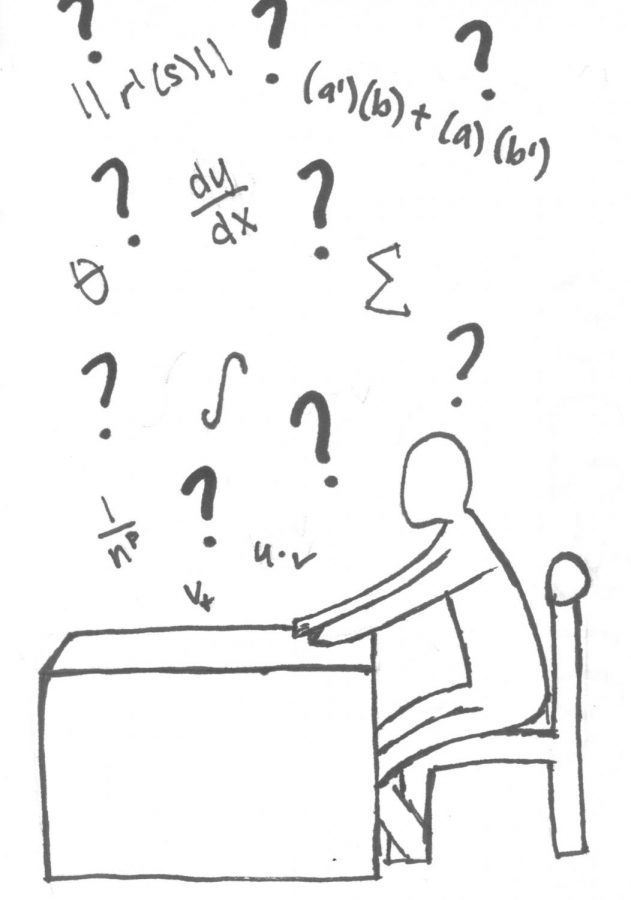Asking for help: not the end of the world
May 9, 2019
In my four years of high school, the most important thing I learned was how to ask for help. During my freshman and sophomore year, when I struggled on a homework problem I would skip it to “come back later”. When I didn’t understand a concept, I’d move on and assume we’d never need it again. And this system worked for me…
…until calculus. Suddenly, things stopped being fine. Because I skipped over the foundations, the building blocks weren’t there to support me. I started to fall behind and my grade began to slip. Then my parents asked if I wanted outside help. At first, I was offended. Tutoring was for people who were failing, who were dumb. I said no without hesitation; I could teach myself and catch up.
Unsurprisingly, this strategy did not work. So I finally surrendered and got a math tutor. And let me tell you, it was the best decision I have ever made. Having an outside perspective teaching and explaining helped to finally start to build the foundations of calculus.
Even asking teachers for help before or after school can change how you are doing in a class and your basic understanding of a concept. Teachers are there to help you when you have a question—don’t be afraid to ask for help. Maybe they have another way of explaining something or other resources for practice outside of class. Teachers can even offer emotional support, not just educational support.
There is nothing wrong with asking for help. It was silly that I was ashamed to get help, and it is silly that it is hard for me to admit that I needed help. Everyone needs support sometimes, but we feel if we admit we need help, people will think we’re not smart.
But asking for help doesn’t mean you’re not smart. Asking for help takes self reflection and the smarts to know that you can improve. In fact, by learning to ask for help, things that were once hard become much easier. Today, I’m not afraid to admit when I need extra help on a concept and it has benefited me extensively.



